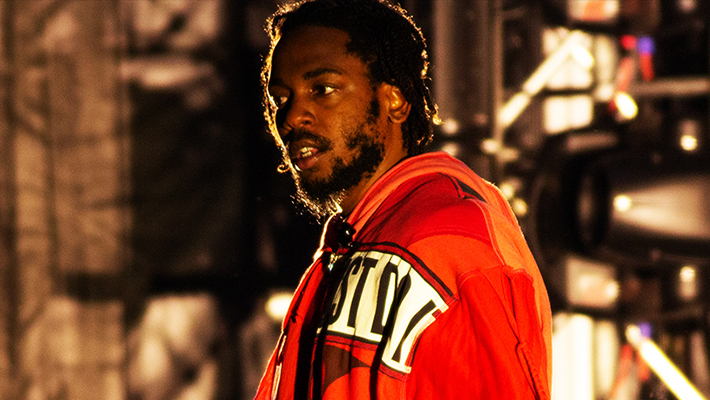In the years since the release of Kendrick Lamar’s Pulitzer Prize-winning 2018 album DAMN., hip-hop fans have been on tenterhooks, awaiting its follow-up. The intervening years have been light on new releases from the elusive Comptonite, leaving his supporters completely in the dark as to his next project’s creative direction or release date. However, this week, we did learn one new thing: Whatever the next album is called or whatever it’s about, it’ll be his last album released by Top Dawg Entertainment, marking the end of an era.
With Kendrick’s announcement, fans couldn’t help speculating whether there had been a falling out between K. Dot and the gang over at TDE — one Isaiah Rashad tweet was misinterpreted as a shot at the departing vanguard, while Top Dawg himself pre-empted much of the conjecture with a respectful salute to his longtime business partner. In all likelihood, it’s much more realistic that Kendrick simply signed a deal with the label for a set number of projects and will fulfill that obligation soon. But what I find more interesting — and you should too — is looking back on how that partnership shook up the rap game for a decade, and how each partner might move forward in the future.
The roots of that partnership go back even further than Kendrick signing to TDE. He detailed the “only in California”-style connection between his father and Anthony “Top Dawg” Tiffith on the song “Duckworth” from DAMN. Kenny’s father, Ducky, worked at a chicken spot that Top decided to rob; Ducky’s habit of sliding Top extra chicken on the low prompted Top to spare him, leading to a funny full-circle moment when Kendrick “introduced” the two after being signed to Top’s label some 20 years later. When Kendrick signed to Top Dawg in the mid-2000s, though, neither of the two probably had any idea the profound effect they’d eventually have on the music industry.
Coming of age in the so-called “blog era,” one of Kendrick and Top’s first major accomplishments was leveraging the success of K. Dot’s mixtapes into independent sales of his retail projects Overly Dedicated and Section.80. While Kendrick’s peers like Big Sean, Drake, J. Cole, and Wale were signing to major labels — and detailing their struggles with securing release dates, clearing samples, negotiating reasonable marketing budgets, and getting their records under shipped — Kendrick went directly to his fan base via then-new digital retailers like iTunes, ensuring creative control and max profits for his independent label. By the time Kendrick was dubbed “New King of the West Coast” by Dr. Dre, The Game, and Snoop Dogg, he had more leverage than nearly any other indie artist that came before him.
While his “debut” album Good Kid, MAAD City brought unprecedented attention back to the West Coast, spotlighting the shortcomings of the Grammy Awards for the first time during the social media era, and racking up rave reviews, its follow-up, To Pimp A Butterfly, turned the rap game on its ear. Thanks to the unprecedented support of Top Dawg Entertainment, Kendrick was able to overcome the so-called “sophomore jinx” that had plagued previous “chosen ones” in hip-hop like Jay-Z and Nas by blowing out the production process with contributions from LA’s burgeoning jazz revival scene. Those collaborations led to artists like Kamasi Washington, Terrace Martin, and Thundercat becoming household names in their own rights, which might not have been possible on a standard major-label deal.
Alongside TDE, Kendrick executive produced the soundtrack to Marvel’s Black Panther movie, and the negotiation leverage afforded to Kenny and Top by their independent successes allowed them to finagle unheard-of publishing deals that allowed them to maintain control over the rights to the music and ask for mind-boggling amounts on eyebrow-raising timelines. While normally, publishing deals can last longer than rap artists’ entire careers, Kendrick and TDE have been able to wrangle more short-term agreements that favor them while also satisfying partners who know that Kendrick’s catalog is one of the most sought-after in the game. And now that Kendrick is leaving TDE, presumably to release music under his own label, PgLang, he’ll likely be able to carry that leverage into any future negotiations to distribute and manage his music on terms many artists would envy.
Meanwhile, TDE is already positioning itself for its post-Kendrick phase of business, which could find them reverting back to the template that started it all. It’s inarguable that Kendrick was TDE’s most profitable and marketable signee, the tentpole that generated the revenue allowing artists like Isaiah Rashad, Jay Rock, and SZA to take their time on their own releases. With that said, even without him, TDE still has the aforementioned artists (along with Schoolboy Q and SiR), who generate plenty of profit on their own. In addition, the label has signed newcomers like Doechii, Reason, and most recently, Long Beach rapper Ray Vaughn to its stable, and immediately set about dropping music from them through digital channels. While they may not have the attention of a more established artist and are definitely fighting a more crowded marketplace, the lessons in digital distribution that TDE gleaned from its work with Kendrick will undoubtedly apply and serve them in good stead.
The future, for both Kendrick and TDE, looks bright. Top Dawg’s new artists will have the opportunity to develop and grow their careers based on the experience that the label has built up over the past decade, while Kendrick can take the same experience and apply it to the PgLang agency’s endeavors. Since the partners parted on good terms, there’s also no real reason they couldn’t continue to find ways to work together in the future, whether on new music or other business ventures. Ultimately, Kendrick leaving TDE can turn out to be a good thing for both; after all, every bird has to leave its nest eventually, striking out to build a home of its own. Wherever Kendrick ends up, he’s been set up for success and blazed a trail that TDE’s future artists can follow to their own.
Some artists covered here are Warner Music artists. Uproxx is an independent subsidiary of Warner Music Group.





